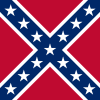

| Online: | |
| Visits: | |
| Stories: |

| Story Views | |
| Now: | |
| Last Hour: | |
| Last 24 Hours: | |
| Total: | |
The Alt-Right Confronts Louis Hartz
I’ve finally gotten around to reading Louis Hartz’s The Liberal Tradition in America.
It seems like an appropriate time. A friend sent me a copy to read and review last fall. Since then, President Trump won the 2016 election. Just yesterday, I posted a video here in which Jason Jorjani proclaimed “the Alt-Right is unequivocally opposed to liberal democracy.”
Louis Hartz famously argued in 1955 that the United States was so dominated by the liberal tradition that non-liberal challengers could never take root here:
“CONSERVATIVES dominate American politics because there is no conservative tradition in American political thought. Liberals are powerless because all Americans are liberals. Americans argue with each other so virulently because there is so little about which they disagree. They elect presidents from distinguished families because they detest aristocracies. Their society is so secure that they feel constantly under attack. The more isolationist their instincts, the more likely they are to view themselves as saviors of the world.
It takes a love of paradox to appreciate the work of Louis Hartz, whose pathbreaking book, “The Liberal Tradition in America,” is celebrating its 50th birthday. An Ohio-born and Nebraska-raised Jew who spent his entire professional life at Harvard, Hartz received instant recognition for his book, which won the American Political Science Association’s Woodrow Wilson Prize in 1956. Hartz influenced scholarship dealing with national identity, the role of the United States in the world and the idea of “American exceptionalism.” …
The rise of President Trump and the Alt-Right has been a major blow to the Hartzian paradigm:
“Trump’s effect on writing a syllabus has been to make this political controversy even more poignant. This is because for the last 50 years, most political-science professors have relied on what has become a standard framework. It comes from Louis Hartz, a Harvard professor, whose famous thesis states that both the left and the right in the United States are dominated by what he dubbed the “liberal tradition” (“liberal” in the older sense of the word and not as the opposite of “conservative”). The liberal tradition is an ideology that affirms individual rights, due process of law, and a separation of powers in government. Hartz believed this tradition was so ingrained in American culture that there had never really been a need for a distinct liberal party or movement but simply what he called “the American Way of Life.” On this view, ideological conflict in the United States has primarily been an intramural quarrel among conservative liberals, centrist liberals, and liberal liberals.
The dominance of the Hartzian paradigm is evident in the way the top textbooks in American politics (used to teach literally thousands of undergraduates every year) uniformly omit any extended analysis of fascism, communism, or any other non-liberal ideology. This omission was certainly standard practice among political scientists who taught introduction to American politics courses at Berkeley. What it allowed professors to do was paint the full ideological spectrum in the U.S. using the same brush. Everyone in America was more or less on the same side. No harsh lines needed to be drawn. Of course, whether intended or not, this assumption implied a kind of liberal triumphalism. Other ideologies could be ignored because all American roads led to one final destination—liberalism. …
The lesson of all this is that the rise of Trump has shattered the Hartzian illusion that American politics is one big, happy, liberal tradition with occasional family spats. Professors of American politics will need to venture much further afield if they are to properly map the actual contours of American ideology.”
There is a grain of truth to this.
In light of all that has transpired over the past two years, I am going to be reviewing the book soon. You could say it is a look back into the sunny optimism of mid-20th century American liberalism. By 1955, Jews had clawed their way into the American elite and were at the historical apex of their power. This elite was about to embark on a bold experiment to remake America in their image. A central ideological tenant of this experiment was the notion that America is an “idea” open to everyone.
Interestingly, Professor Hartz argues in The Liberal Tradition that Americans were born free. We didn’t become “free” on account of the ideology of the Declaration of Independence and American Revolution. Traditionally, the American colonies had been left to their devices. When the British began to consolidate and centralize the Empire after the expulsion of the French from North America, Americans revolted because this was perceived as an affront to their own traditions. In this sense, I completely agree and it is a critical point that has been lost on later generations.
In the 18th century, the American colonists were already “the freest people in the world.” The ideology of the Enlightenment was grafted on to the American historical experience. Jefferson and others borrowed from the Enlightenment notions of their day to justify the American Revolution. In such a way, the rights of Englishmen, as understood in the colonies, was universalized to become “the rights of man.” Rather than shaking off a meddlesome and distant government because of grievances like the Proclamation of 1763 and the Intolerable Acts, the American Revolution became an expression of liberal ideology.
Source: http://www.occidentaldissent.com/2017/02/27/the-alt-right-confronts-louis-hartz/


